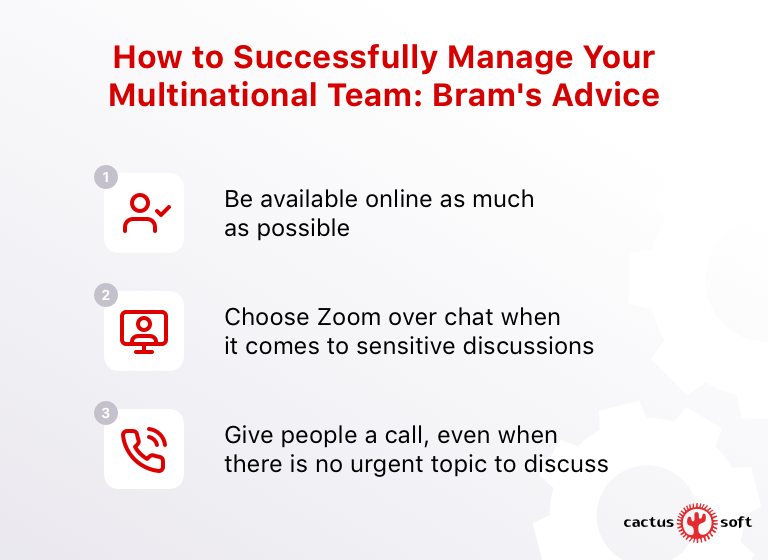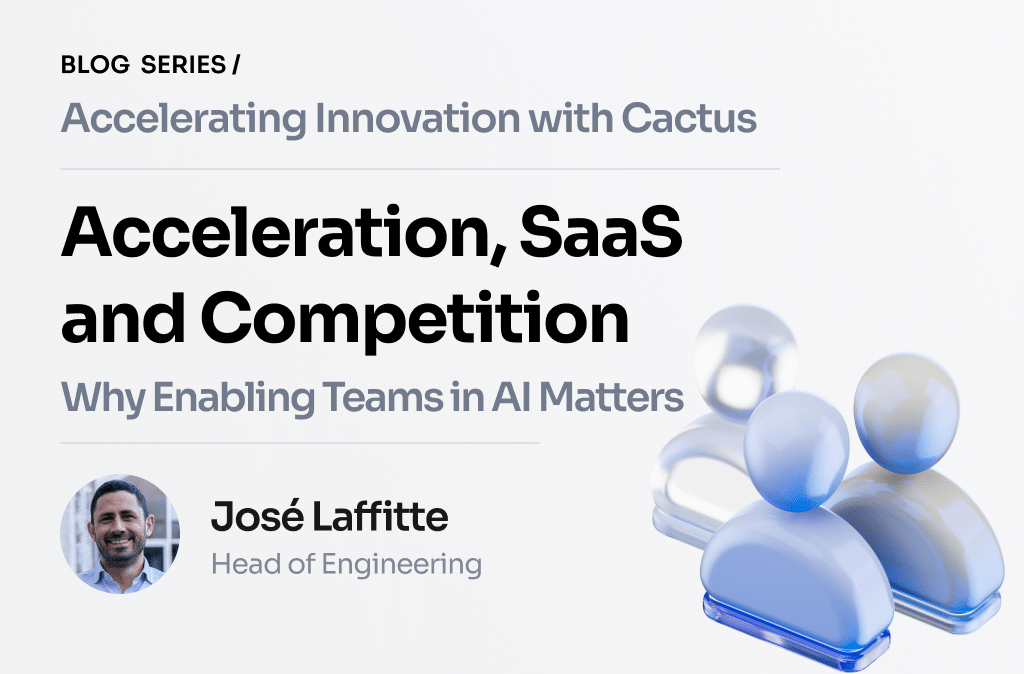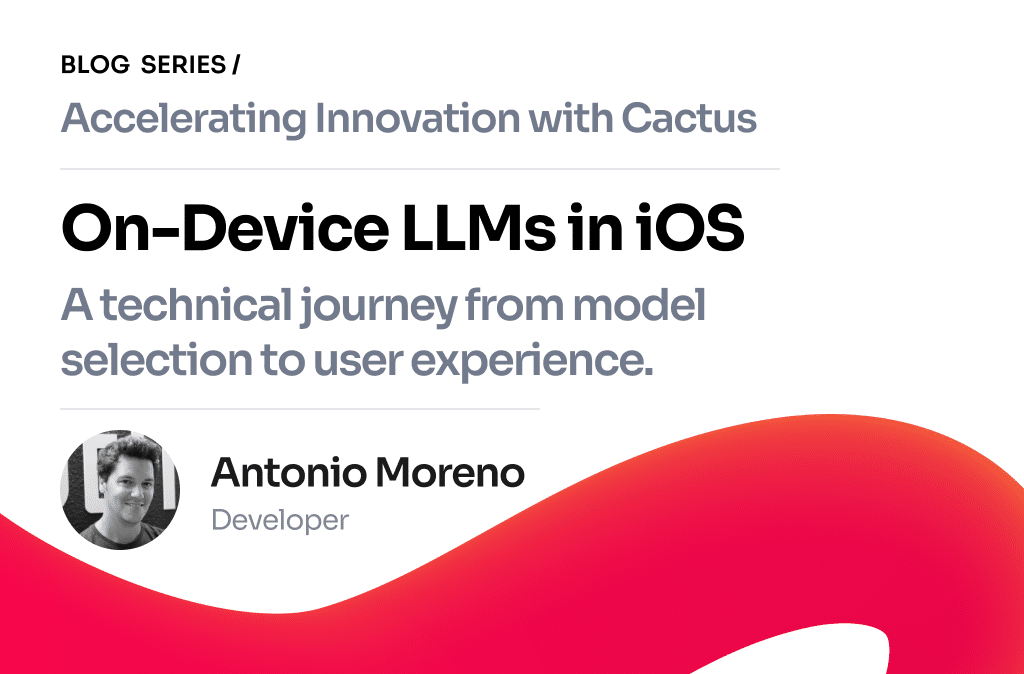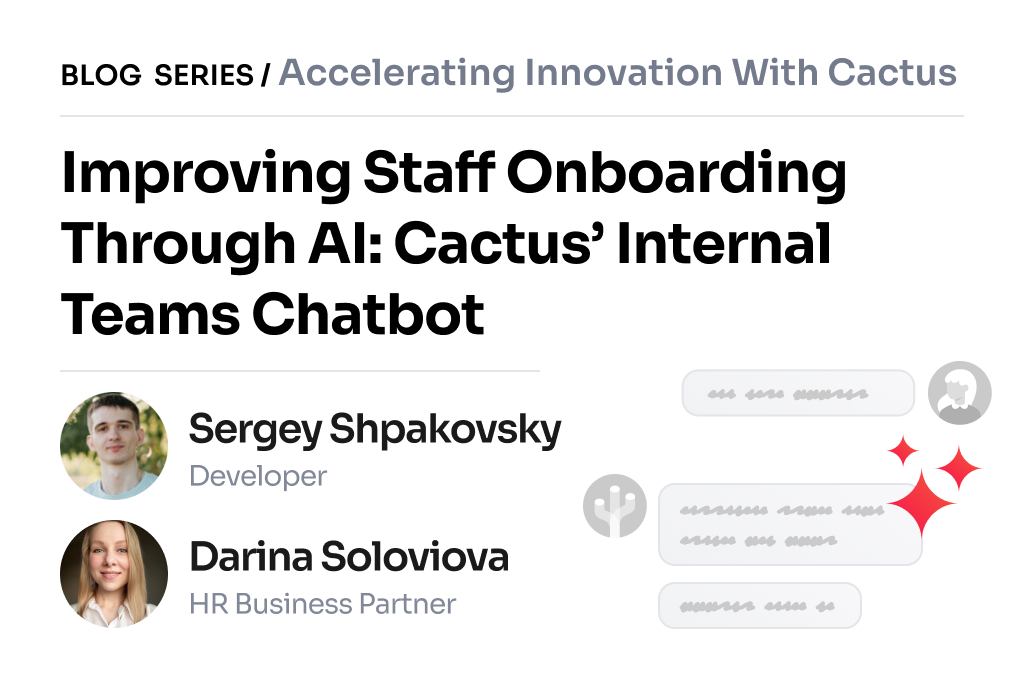Hello, I am Bram. Five years ago, I launched into an adventure called CactusSoft, with the clear ambition to help companies located close to my home with their challenge to build decent digital applications for the future.
Yes, I care about the wellbeing of the region where I live, pay taxes, and raise my kids. Hence, I was committed to help solve the lack of talent in software development that hinders companies trying to achieve the necessary step of becoming future-proof.
I ended up in Minsk, Belarus, buying a company staffed with, of course, local people. Most were named Alexey, with some exotic variations of Alexander, and the ladies were called Ana or Daria. It was the start of the discovery of a new culture, on both a personal and a business level.
I had 15 years’ experience working in international firms with people from Spain, France, Germany, and England. In hindsight, these were all quite close to Belgium, and quite similar. Now, crossing the iron curtain, things turned out to be a bit different…
I was equipped with my personal ‘handbook’ consisting of two key expressions my previous bosses had taught me:
- On ne saurait faire boire un âne qui n’a pas soif (a rough translation is ‘You can’t make a donkey who isn’t thirsty drink’)
- Treat your people like you want to be treated yourself.
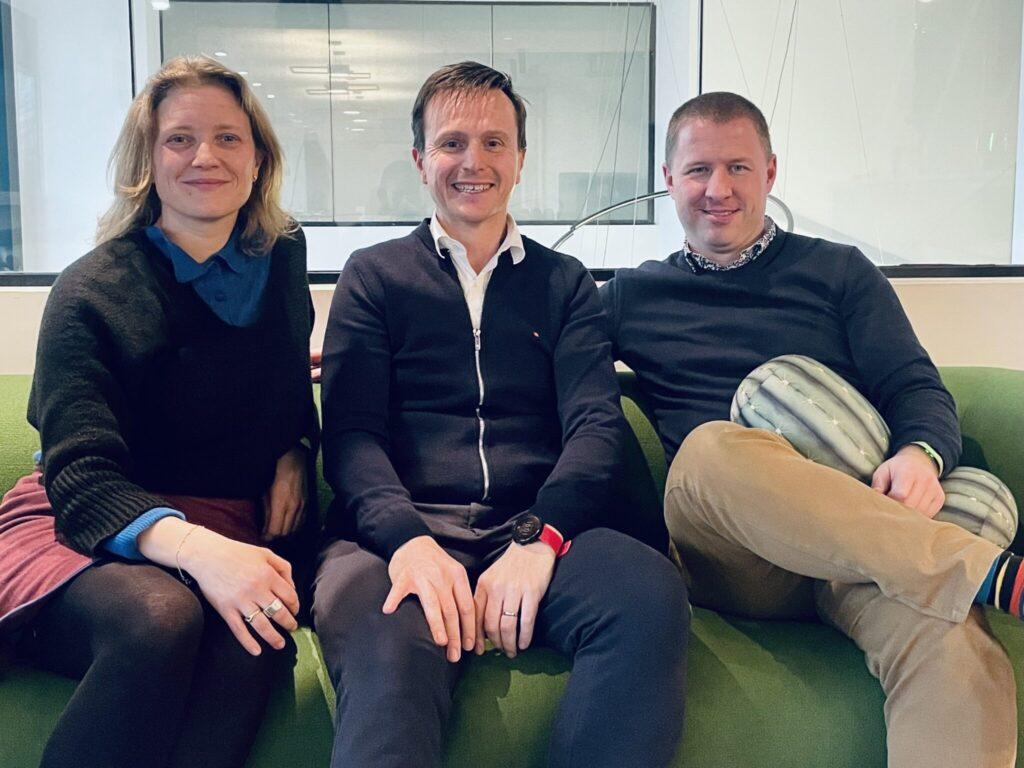
Overcoming Differences in Mentality: Western vs Eastern Europe
So, I discovered that on some topics, such as how to make decisions, Belarusians are not as ‘thirsty’ as I was used to. In my previous experiences, especially tough decisions were – yes, I admit – treated delicately, and hence taken slowly. Quickly I noticed in Belarus that a decision is expected to be taken seconds after all elements are known: you are expected to think close to the speed of light while absorbing all information and putting it into action. How neat is that? Throwing away all political small talk, pre-alignments before taking decisions, lengthy meetings about communication, etc.: all to the waste bin!
Being prepared at all times was the new gimmick. Be sharp when the recruiter informs you about a suitable candidate being available for a job offer. ‘I’ll think about it’ would not work, because wasting five seconds in the decision-making process might have given the impression of ‘we don’t care’ or even ‘we don’t want him/her onboard’. Better results were achieved with ‘great, offer a salary of x asap!’ So, lesson learned: people were not thirsty for lengthy and elaborate decision-making processes. Check!
Treating people like you want to be treated yourself was a lesson I learned from Sir Richard Brandson himself. Equipped with a sleeve full of polite questions showing interest in people’s private lives, work–life balances, their dogs and children, I discovered some resistance: there was little appetite to disclose personal things. No invaders, please. So, maybe I should rephrase it as ‘treat people like they want to be treated’. That worked better. Keeping the personal interest questions for those suitable (rare) moments, it appeared the more important thing was that most employees wanted to be taken care of: I was expected to be there when things turned bad. Projects that turned out to be complex, customers asking the impossible: playing the in-between buffer was spot-on. Check!
Although these two cultural differences may sound a bit anecdotal, the broader picture is a universal one: remain true to who you are, but respect others’ ways of thinking and interests. Show the values you really care about: be transparent and reward people. These are universal. Put the employees at the heart of the organization.
Managing a Distributed Team: What to Know
So, there are no challenges left? Sure there are. Distance remains a strange thing. Although it seems sometimes too time-intensive to travel back and forth, it pays off in the end.
Understanding each other also translates into eye contact, observing the details and taking into account the specificities of each person. Being together at an important moment builds trust and belonging.
In the face of the covid situation and the travel restrictions to Belarus, things didn’t become easier. Taking into account the distant work relationship, I provide three examples of daily practices I tried to use:
- Be available online as much as possible: Leave a call when an important issue arises – you would do the same in the ’old-school world’: people would come into the meeting room and ask you to leave it for a moment. Online is no different.
- Choose one-to-one when it comes to sensitive discussions: Some people lack trust in online meetings and behave differently; therefore one-to-one meetings can make them feel at ease.
- Give people a call, even when there is no urgent topic to discuss: Try to sense the temperature of people, whether they are fine.
At the same time, let’s be honest as well: there are boundaries to what you can achieve working from a great distance. It is virtually impossible to satisfy everyone at all times… In the end, ‘on ne saurait faire boire un âne qui n’a pas soif!’
